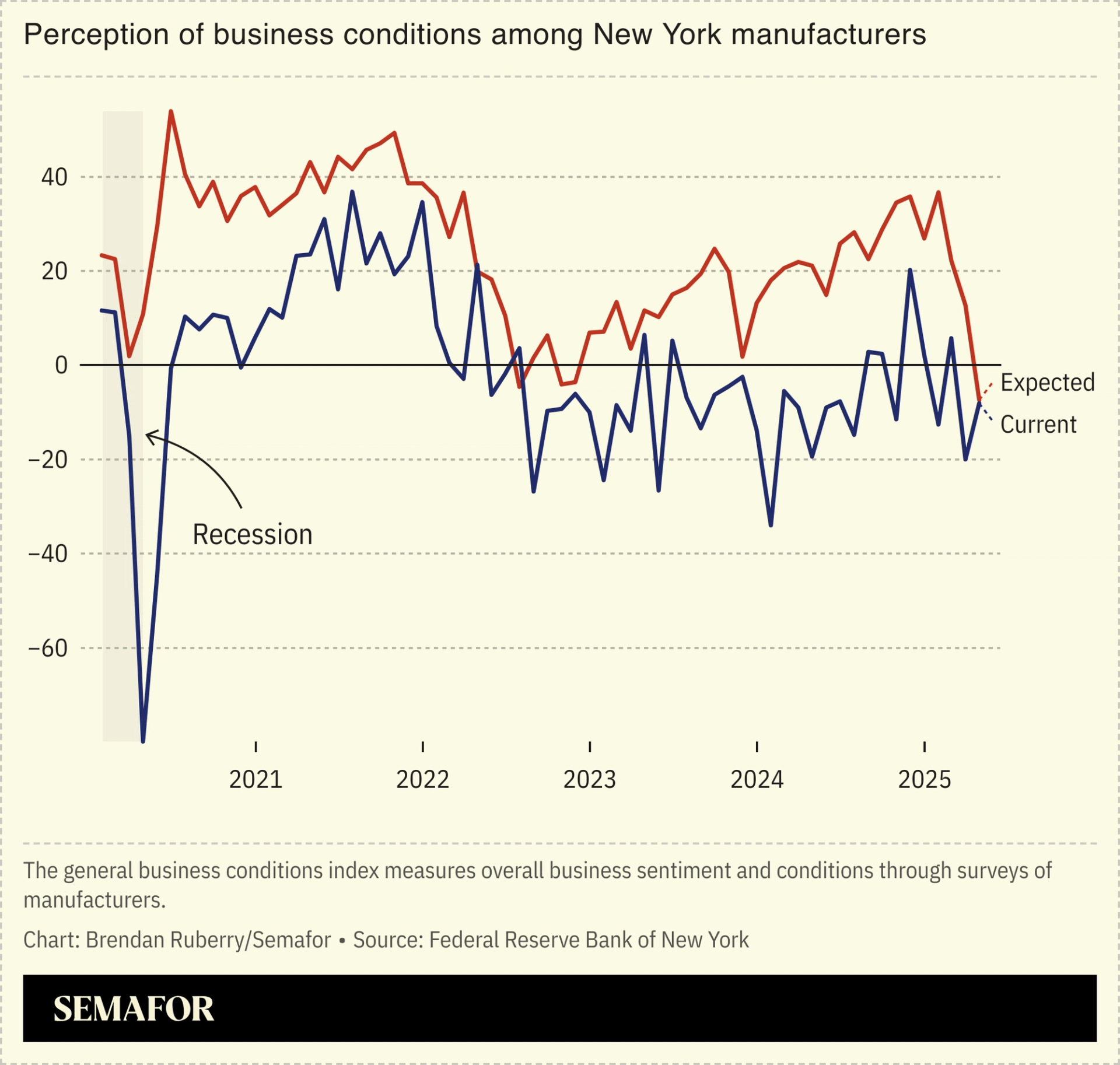The News
US President Donald Trump has cast his aggressive trade policy as a boon for American manufacturers, but many aren’t sold.
Beyond a handful of high-profile examples of major investments, some of which were already planned, economists are skeptical of Trump’s theory that hiked tariffs on imports will trigger an American manufacturing resurgence.
Those companies that do maintain manufacturing footprints in the US, meanwhile, have warned of budget cuts and layoffs. And international orders have already started to slow: China on Tuesday reportedly ordered its airlines to halt shipments of Boeing planes, dealing a blow to America’s biggest exporter.

SIGNALS
US manufacturers with global customers are increasingly pessimistic
A recent survey of New York manufacturers found “a level of pessimism that has only occurred a handful of times in the history of the survey,” with firms reporting that they expect their international orders to decline, with layoffs likely on the horizon. Some US firms with global customer bases may even consider relocating overseas as businesses seek to avoid retaliatory duties and being “caught in the trade-war crossfire,” an expert wrote in The Wall Street Journal. “Why would someone in Japan or Australia or Canada order an American bike if things could change dramatically again next week?” one US-based bike-maker said. “My orders have certainly slowed.”
US businesses aren’t setting up new factories, raising employment concerns
Companies large and small are not rushing to set up US manufacturing facilities — raising questions about whether those firms that rely on imports can remain economically viable. Several US business owners told Wired that they have explored making their products in the US, but it’s too expensive, it’s difficult to get the raw materials, and there are too few available workers. “Chinese manufacturing is still the gold standard of the world,” Wired wrote. In a new CNBC survey, most companies said it would be more cost-effective to relocate to low-tariff countries instead of reshoring to the US — in part because of the challenge of finding skilled labor. Of those companies that said they might build US factories, 81% said they would use automation rather than human workers.
In some factory towns, layoffs have begun but slivers of hope remain
Job cuts have already begun: Within hours of Donald Trump’s “Liberation Day” tariff announcement, automaker Stellantis said it would temporarily lay off hundreds of employees. But some of those same workers, who have seen their region’s manufacturing might fade over the past two decades, are hopeful Trump’s trade strategy will pay off in the long run and create more jobs, The Washington Post reported, although not everyone is convinced. In a survey of more than 500 manufacturing workers, a majority said the tariffs will hurt them, but about 40% supported the idea behind them.

